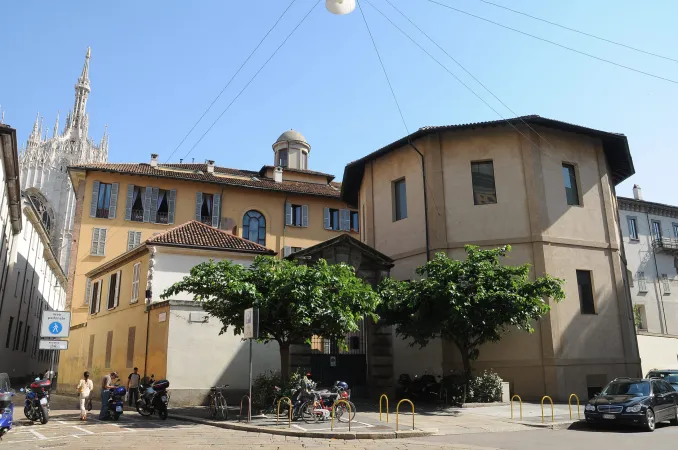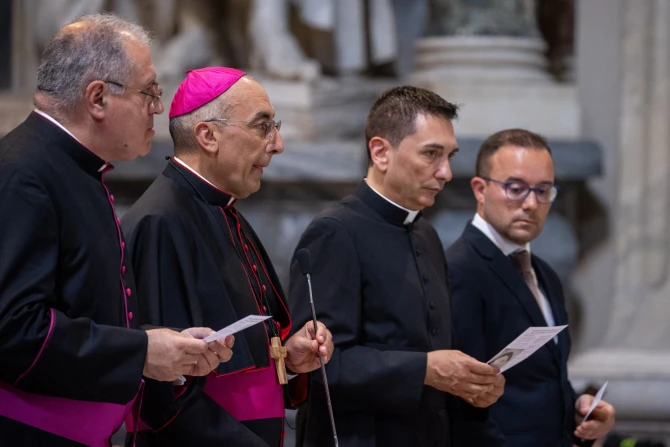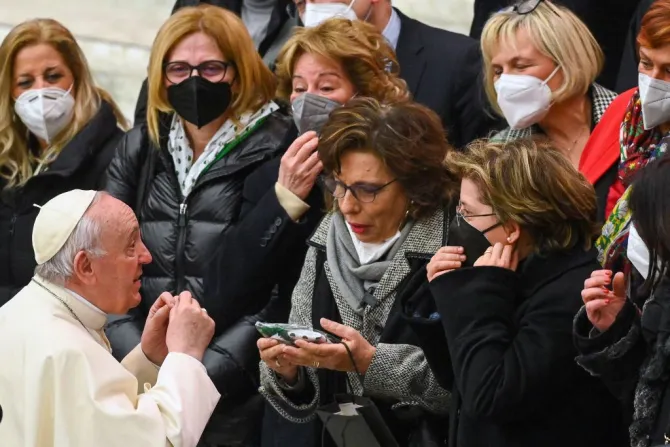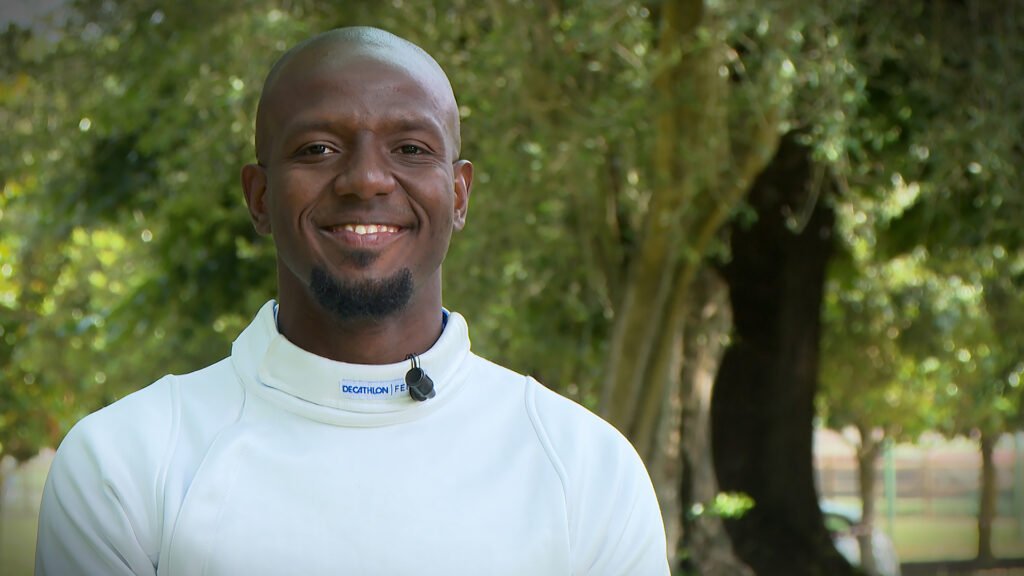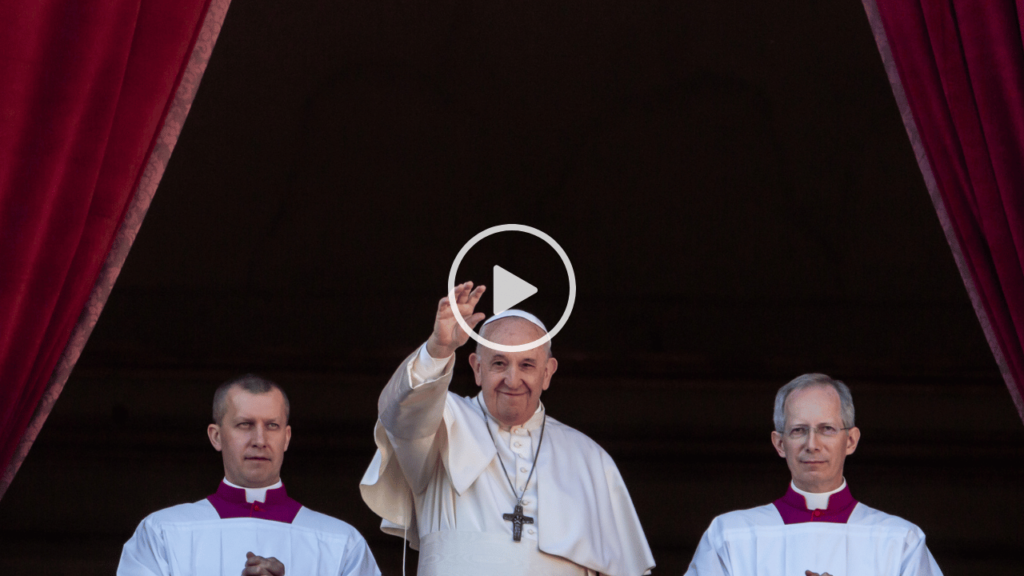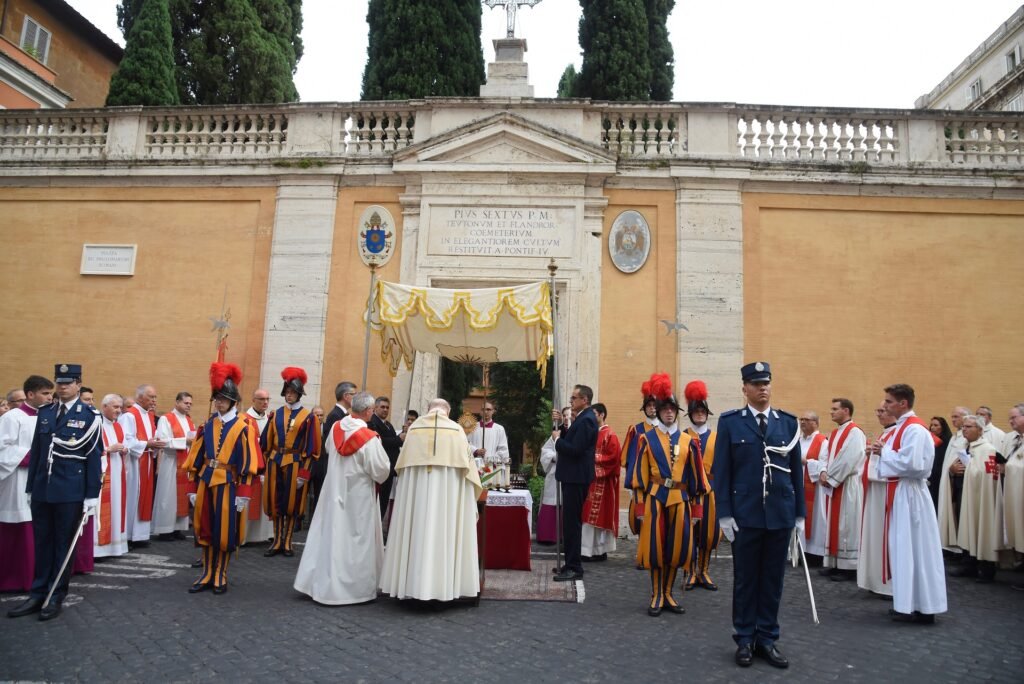The Masonic Grand Masters of the three great obediences of Italy were there, together with the Archbishop of Milan Mario Delpini, who introduced the event, and Cardinal Francesco Coccopalmerio, president emeritus of the Pontifical Council for Legislative Texts, who concluded the event. And he concluded with a “bang,” one would dare say, launching the idea of a permanent “roundtable” with Freemasonry to engage in dialogue.
Fortunately, before him, Bishop Antonio Staglianò, president of the Pontifical Academy of Theology, had spoken about the reasons for the incompatibility between the Church and Freemasonry, and Father Zbigniew Suchecki, O.F.M. Conv., had talked about the Pronouncements of the Catholic Church on Freemasonry. In short, it is clear that the Church and Freemasonry are incompatible, reiterated, among other things, by one of the recent responsum of the Dicastery for the Doctrine of the Faith.
Yet the seminar held in Milan seems to mark a breaking point after some outstretched hands by representatives of the Church towards a dialogue with Freemasonry of a more or less interlocutory nature. The speakers were the Grand Masters of the three largest obediences in Italy: Bisi of the Grand Orient of Italy, Fabio Venzi, Grand Master of the Regular Grand Lodge of Italy, and Luciano Romoli, Grand Master of the Grand Lodge of Italy of the A.F.A.M.
Cardinal Coccopalmerio said that, “From what I have been able to understand, but I am not an expert in this matter, I believe that there is an evolution in mutual understanding. Fifty years ago, there was less knowledge, but things have moved forward, and I hope these meetings don’t stop here. I wonder if we couldn’t think of a permanent roundtable, even at an authority level, in order to discuss things better.”
Archbishop Mario Delpini was also very open on the topic, underlining how the symposium (strictly by invitation, as we know from a report in Il Messaggero) was born as a “question of knowledge,” given that “not everyone may have studied the topic in depth concerning such an ancient and prestigious organization always surrounded by an aura of mystery and suspicion. So, it seemed to me that the G.R.I.S. (Social-Religious Research and Information Group) wanted to delve deeper. It is, therefore, not a question of absolution but of encouraging conversations between people to understand their respective points of view, recording their convergence or distance. Obviously, this conference does not end with any final document.”
The Grand Master of the Grand Orient of Italy, Stefano Bisi, said that he has been passionate about the topic of a possible encounter with the Church for some time and that he would like “the prelate, the man of the Church before me, not to be afraid of me, and I would like not to be afraid of him.” He added that he hopes that “one day a Pope and a Grand Master will be able to meet and travel a part of the way together, in broad daylight. I would even say, in the light of the Great Architect of the universe.”
He recalled the correspondence he had with Cardinal Gianfranco Ravasi, who, in 2016, from the columns of the Sole 24 Ore, wrote the article “Dear Brother Freemasons,” highlighting how Pope Francis opened up to homosexuals with the “Who am I to judge,” then to the divorced, but “it was forgotten that among the Freemasons there are also many Catholics who are prevented from receiving communion and when it came to granting credentials to a Freemason ambassador he said ‘no.'”
But is it really time for an encounter between the Church and Freemasonry? It is one thing that politicians and people of all kinds pass through the Apostolic Palace, some with well-rooted Masonic affiliations, and that they have a dialogue with the top figures of the Holy See not because they are Freemasons but because of their role. It is another thing to open up to a dialogue on the principles of Freemasonry, which are utterly irreconcilable with the teachings of the Church.
This irreconcilability was reiterated by the Dicastery for the Doctrine of the Faith in a note following an audience with the Holy Father on 13 November 2023, responding to a question from Bishop Julito Cortes of Dumaguete (Philippines), concerned by the fact that faithful increasingly join the ranks of the “freemasons.” The Dicastery’s response is pastoral and calls for coordinated action by the bishops, based on catechesis reiterating the Church’s teaching. And it is interesting how the idea of a discussion roundtable with Freemasonry, tossed around as if it were an innocuous idea, is not contemplated by the Dicastery for the Doctrine of the Faith, which instead rather calls for an explanation of the reasons for the non-conciliatory nature of the Catholic Church and Freemasonry.
The note from the Dicastery recalled that “active membership in Freemasonry by a member of the faithful is forbidden because of the irreconcilability between Catholic doctrine and Freemasonry,” as established both by the 1983 Declaration on Freemasonry of the Congregation for the Doctrine of the Faith and the guidelines published by the Philippine bishops themselves in 2003. Therefore, “those who are formally and knowingly enrolled in Masonic Lodges and have embraced Masonic principles fall under the provisions in the Declaration mentioned above. These measures also apply to any clerics enrolled in Freemasonry.”
The Dicastery, therefore, proposed to the Philippine Bishops to “conduct catechesis accessible to the people and in all parishes regarding the reasons for the irreconcilability between the Catholic Faith and Freemasonry,” also evaluating whether “they should make a public pronouncement on the matter.”
Therefore, The deepening of analysis is not in understanding the Masonic phenomenon but rather in how the Church has expressed its opinion on Freemasonry.
And, after all, there are over 600 documents from the Popes that condemn Freemasonry, directly and indirectly, while the magisterium of the Popes explicitly dedicated to the Freemasonic phenomenon is represented by a collection of documents ranging from the encyclical of Clement XII In Eminenti Apostolatus Specula of 28 April 1738 up to the Annum Ingressi of Leo XIII of 1902, passing through the Humanum Genus of the same Pope which is a real milestone in the fight against Freemasonry.
One document that was very thorough and necessary in order to understand how the Popes observed the Freemasonic phenomenon was officially founded in 1717 by Protestant pastor James Anderson in England.
Since 1903, there have been no Papal encyclicals formally dedicated to the condemnation of Freemasonry, but canon 2335 of the 1917 Code of Canon Law declares that those who join Freemasonry or other associations of the same kind, which plot against the Church incur ipso facto excommunication reserved to the Apostolic See.
The 1983 Code of Canon Law has no explicit mention of Freemasonry. On 26 November 1983, however, the Congregation for the Doctrine of the Faith, then led by Cardinal Joseph Ratzinger, noted in a statement also cited by this recent document of the Dicastery that “it has been asked whether there has been any change in the Church’s decision in regard to Masonic associations since the new Code of Canon Law does not mention them expressly, unlike the previous Code,” and that this was due “to an editorial criterion which was followed also in the case of other associations likewise unmentioned since they are contained in wider categories.”
“Therefore, the Church’s negative judgment regarding Masonic association remains unchanged,” wrote the Congregation, since their principles have always been considered irreconcilable with the doctrine of the Church. Therefore, membership in them remains forbidden. The faithful who enroll in Masonic associations are in a state of grave sin and may not receive Holy Communion.”
Furthermore, the Congregation established that “it is not within the competence of local ecclesiastical authorities to give a judgment on the nature of Masonic associations which would imply a derogation from what has been decided above, and this in line with the Declaration of this Sacred Congregation issued on 17 February 1981 (cf. A.A.S. 73 1981 pp. 240-241; English language edition of L’Osservatore Romano, 9 March 1981).”
Translated and Adapted by Jacob Stein

